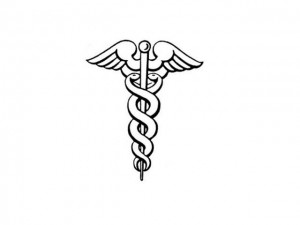On the same day the man with the first diagnosed case of Ebola in the United States died, and a dog in Madrid was euthanized out of fear it would spread the disease, the Illinois Department of Public Health issued a statement to reassure Illinoisans.
 IDPH Director LaMar Hasbrouck said there are no suspected or confirmed cases in Illinois and addressed the State of Illinois’ preparedness to handle Ebola patients.
IDPH Director LaMar Hasbrouck said there are no suspected or confirmed cases in Illinois and addressed the State of Illinois’ preparedness to handle Ebola patients.
“I want to reassure the people of Illinois that the State is reviewing and confirming protocols and plans already in place to ensure our public health systems is able to quickly identify a potential case, evaluate the person and isolate them if needed, implement infection control practices, conduct contact tracing of people potentially exposed to a suspected case, submit specimens for laboratory testing and provide care for the patient,” Hasbrouck said. “If there is a suspected or confirmed case of Ebola in Illinois, we will immediately inform the public and provide as much information as possible.”
The statement came hours after a Liberian man, Thomas Eric Duncan, 42, died from Ebola in a Dallas hospital. Duncan’s case brought in to question American hospitals’ ability to safeguard the public from the Ebola virus.
Duncan became ill and went to Texas Health Presbyterian Hospital in Dallas on Sept. 25, five days after arriving in the city. Despite providing his travel history to the hospital staff, Duncan was sent home. He returned to the hospital on Sept. 28 and was admitted.
The IDPH said Wednesday that any Illinois hospital following the Center for Disease Control’s infection control recommendations, and that can isolate a patient in a private room, is capable of safely managing a patient with Ebola.
In a statement, the IDPH said Ebola is not an airborne infection and is spread through direct contact with blood or body fluids of a person sick with Ebola. A person who is not experiencing symptoms such as fever, vomiting or diarrhea, cannot transmit the virus, the IDPH said.
The IDPH outlined the steps it has taken to prepare for a suspected or confirmed case of Ebola in Illinois. The department has provided guidance on laboratory specimen submission and case management, tested established public health systems to ensure contact tracing is readily available, confirmed plans to establish an Ebola hotline should one be needed, created a web portal with information for IDPH health care partners, completed a CDC online assessment of our emergency preparedness and response activities related to Ebola and participated in national Ebola-related teleconferences, it said.
The Ebola outbreak in West Africa continues to draw the attention of nations all over the world concerned about the spread of the disease through infected patients traveling from the region. Illinois Representative Rodney Davis announced Wednesday a bipartisan letter was sent to the CDC and the Federal Aviation Administration requesting stronger travel restrictions between West African countries and the United States.
Also Wednesday, Spanish newspaper El Pais reported that Excalibur, a 12 year-old dog who was the pet of a Madrid nurse infected with Ebola, was euthanized. Protestors attempted to stop the death of Excalibur, citing a lack of scientific evidence dogs can transmit the disease.



